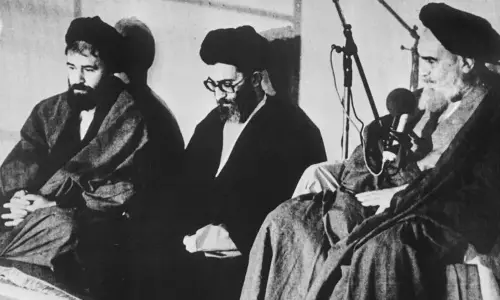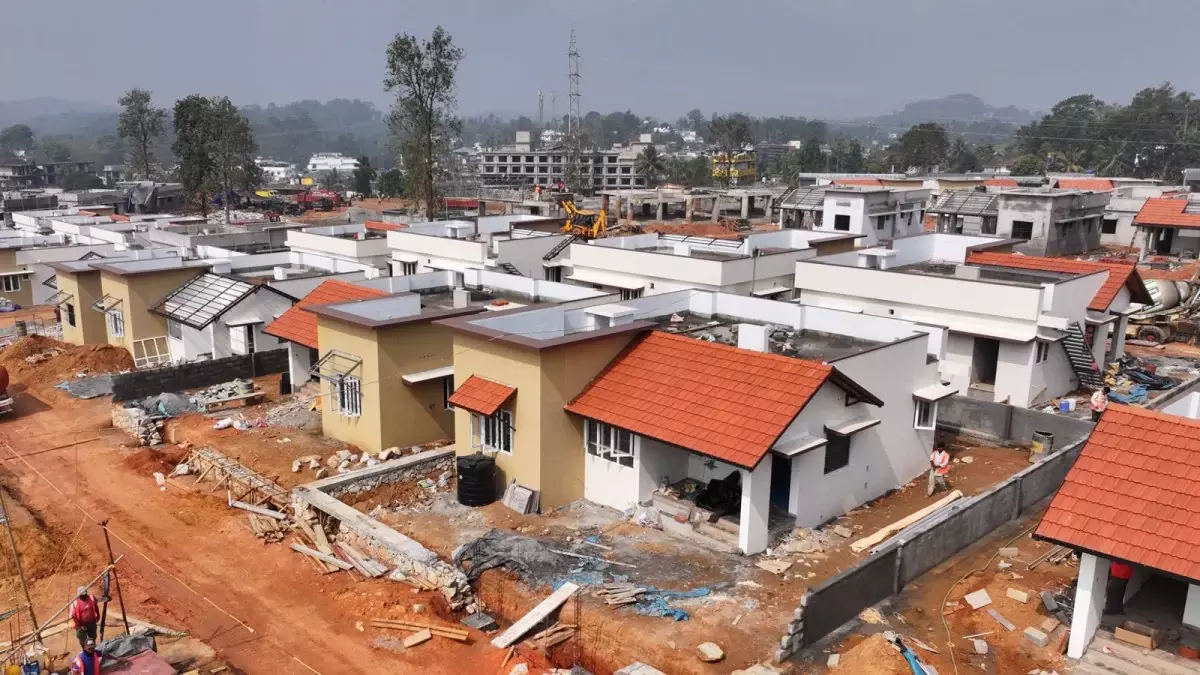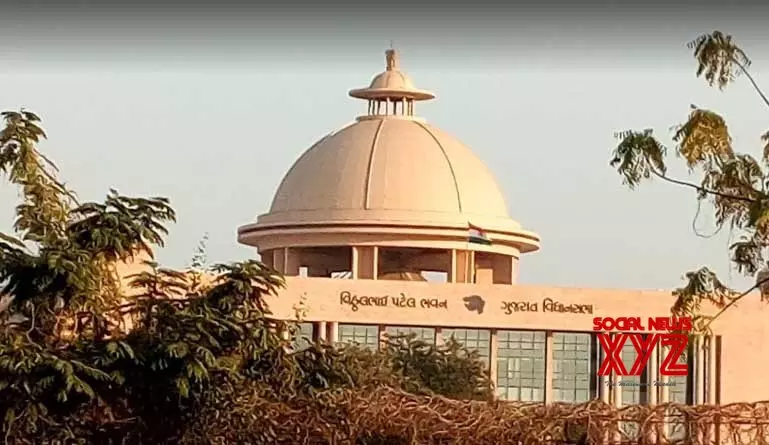
Gujarat Assembly passes new religious conversion law
text_fieldsGandhinagar: Following the footsteps of other BJP-led state governments, and in the name of preventing 'forced' religious conversions, the Gujarat Assembly on Thursday passed a Bill to amend the 'Dharma Swatantrya' (Freedom of Religion) Act, 2003 on the concluding day of the Budget session.
The opposition Congress challenged its intentions and dubbed the bill as a means to take political capital and create religious divide.
The BJP-initiated amendment, tabled by by Legislative Affairs Minister Pradeepsinh Jadeja. seeks to prohibit and punish religious conversions which promise better lifestyle, divine blessings and impersonation on the pretext of marriage.
Already Gujarat has a law that addresses similar issues alleged by the BJP and its allies. The Gujarat Freedom of Religion Act, 2003 dealt with religious conversion through allurement, force or by misrepresentation or by any other fraudulent means.
However, probably to address the core of teachings involved in the preachings of religions and persuade people to convert, the state government felt the need for including such promises of divine blessings also as part of allurements. Advocates of the bills therefore cite episodes of religious conversion promising better lifestyle, divine blessings and impersonation.
However, the thrust of the bill is the conversion of young Hindu women being married by males of other religions. And hence the BJP government's justification that "the state government feels that there is an emerging trend where women are lured to marriage for the purpose of religious conversion."
While speaking on the Bill, Pradeepsinh Jadeja quoted some data related to many states like Kerala, Madhya Pradesh, Odisha, Uttarakhand and Uttar Pradesh, but the minister did not disclose any comparable figures concerning the state of Gujarat.
Leader of Opposition Paresh Dhanani highlighted the meaninglessness of such legislation. He said "by bringing in this new amendment Bill, the state government is admitting that the 2003 'Dharma Swatantrya' (Freedom of Religion) Act has proven meaningless and even after 17 years of framing that law, you (BJP) have to bring this Bill. There is not a single mention of 'Love Jihad' in this Bill". 'Love Jihad' is common parlance used for for conversions by women prior to marriage to men from different faith.
"IPC Sections 406, 417 and 419 are already in effect which address these issues intended to be covered by this new Bill. Despite such clauses, the Gujarat government could not curb such crimes in the state, which is an indirect admission by the Home Minister," added Dhanani.
"Don't politicise this issue of religion. We once again say that hang those who are fraudulently marrying. Attempts should be made to bring together all religions and not create a divide," said Gyasuddin Sheikh, the Congress MLA from Dariyapur.
"We have not said that the victims belong to any specific religion anywhere in the Bill. It is our responsibility to safeguard the interests of the daughters of the state, but the opposition Congress has made this issue as an issue of life and death. I guarantee that anybody in the state will endorse this Bill," said Deputy CM Nitin Patel. However, even on the basis of existing law in Gujarat, or similar legislations in other states, people have been found to take law into their hands where young Hindu women were going to the married by non-Hindu grooms.
According to the provisions of the Bill, whoever is found to be carrying out such religious conversion by marriage, or getting a person married or by aiding a person to get married shall be punished with imprisonment of not less than three years and up to five years and will also be liable to pay a fine of Rs 2 lakh.
If the marriage is in respect of a minor, a woman or a person from SC or ST community, the punishment shall be of imprisonment of a minimum of four years to a maximum of seven years and fine of Rs 3 lakh.
Further, any such marriage carried out for the purpose of unlawful conversion by the person of one religion with one of another religion, by converting himself or herself before or after marriage, shall be declared void by the family court or any other similar court.
The legislation further provides that if any institution or organisation is found to be in charge of or responsible for such marriage, it shall be punished with imprisonment of minimum three years and up to 10 years and a fine of up to Rs 5 lakh.
Moreover, the provisions say that the burden of proof is on the accused and his or her facilitators when an allegation is made that a religious conversion was effected through misrepresentation, force, undue influence, coercion, allurement or any other fraudulent means, implying that mere allegation by any stray accuser can be followed by criminal action unless otherwise proved by the accused.
The offence of such religious conversion through marriage shall be considered cognisable and non-bailable and shall be investigated by an official above the rank of a Deputy Superintendent of Police (DSP).
(With inputs from IANS)























